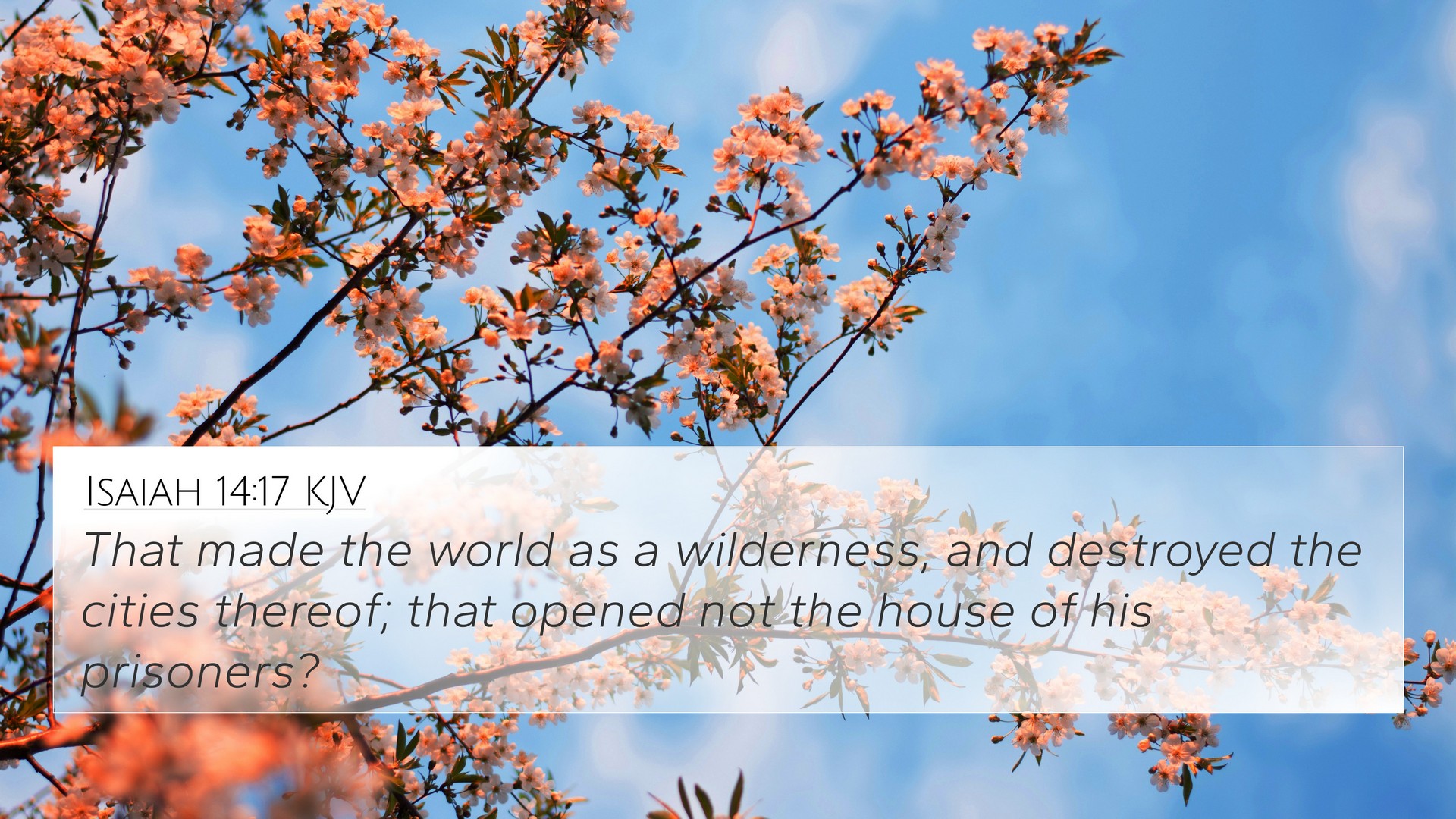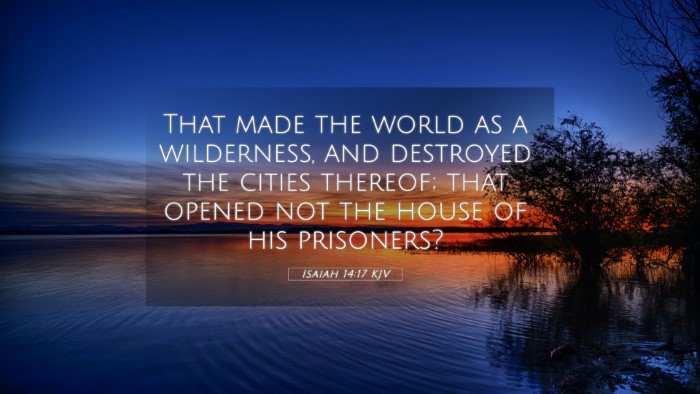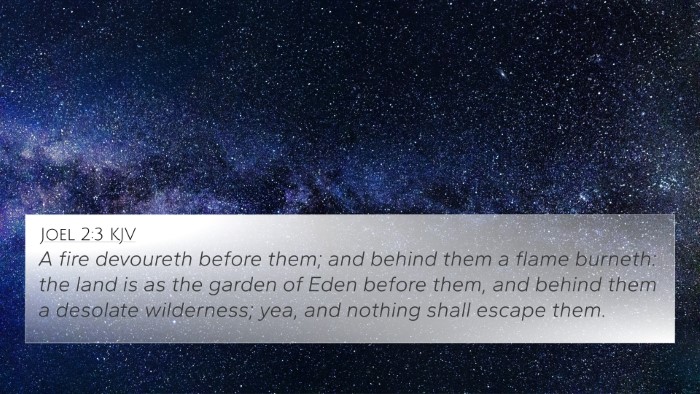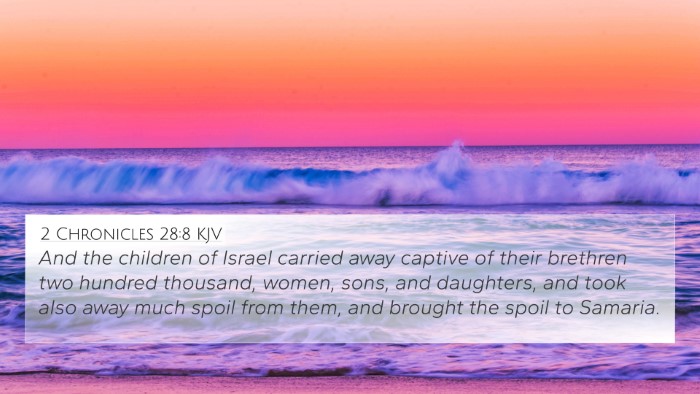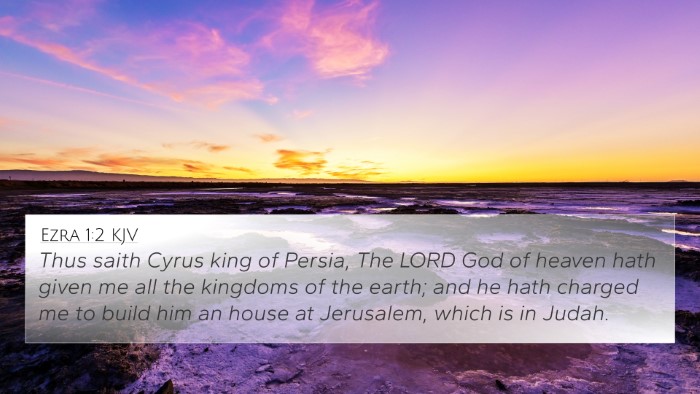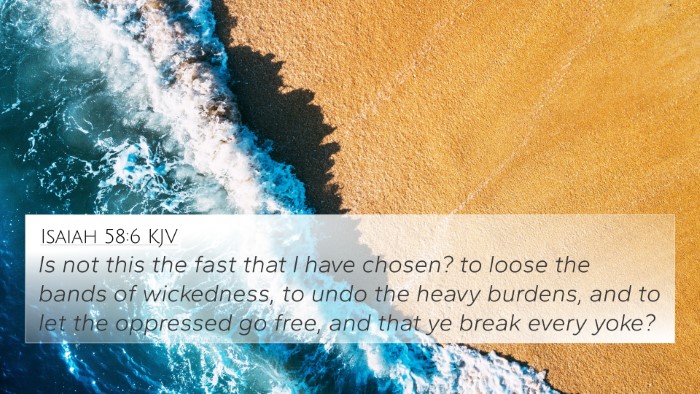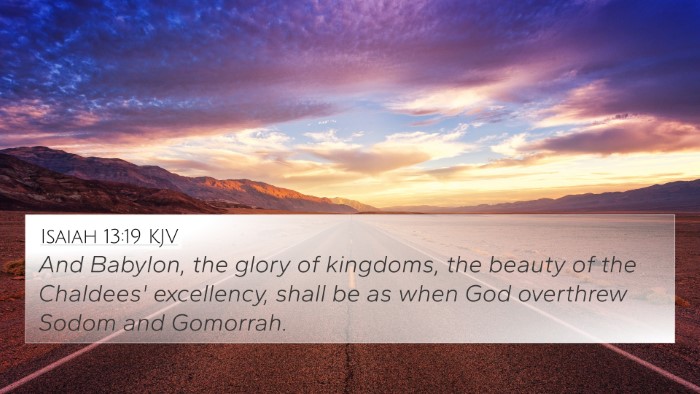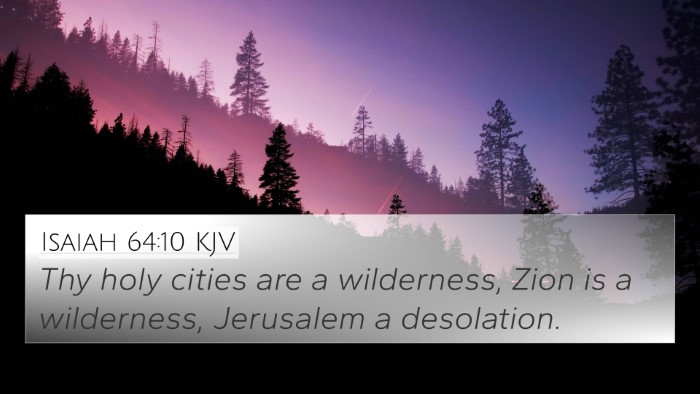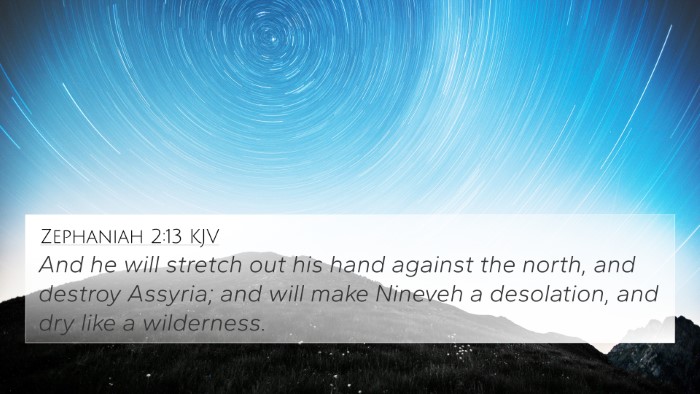Understanding Isaiah 14:17
Verse (Isaiah 14:17): "That made the world as a wilderness, and destroyed the cities thereof; that opened not the house of his prisoners."
Summary of Insights from Public Domain Commentaries
This verse from Isaiah is a powerful condemnation of the oppressor, often interpreted as a reference to Babylon and its kings, who symbolize pride and tyranny. The commentaries provide rich insights into this passage, shedding light on the themes of destruction, captivity, and the eventual downfall of those who oppress others.
Matthew Henry's Commentary
Matthew Henry emphasizes the profound impact of tyranny on society. He notes that the oppressor has transformed the world into a desolate place, reminiscent of a wilderness, where life and civilization are destroyed. This metaphor illustrates the spiritual and moral devastation caused by such rulers and their actions.
Albert Barnes' Notes
Albert Barnes highlights the phrase "opened not the house of his prisoners," interpreting it as a reflection of the oppressor's refusal to liberate those who are imprisoned. This serves as a metaphor for the ongoing oppression, indicating that true freedom is often denied under tyrannical rule.
Adam Clarke's Commentary
Adam Clarke elaborates on the imagery of cities laid waste, suggesting that the destruction inflicted by oppressors is total and devastating. His commentary draws parallels between Babylonian oppression and the broader theme of divine judgment against pride and tyranny that is present throughout Scripture.
Key Themes in Isaiah 14:17
- Destruction: The transformation of vibrant cities into wilderness signifies the consequence of unchecked pride and oppression.
- Oppression: The verse conveys a strong message against those who hold others captive, both physically and spiritually.
- Divine Judgment: It underscores the inevitability of divine retribution against tyrants who behave with impunity.
Bible Verse Cross-References
Understanding Isaiah 14:17 can be enhanced through various cross-references within the Bible. Here are several related scriptures:
- Jeremiah 51:7-8: Discusses the judgment against Babylon, likening it to a cup of wrath.
- Revelation 18:2: Describes the fall of Babylon, echoing themes of destruction.
- Ezekiel 28:17: Refers to pride and fall, relevant to the broader context of oppression.
- Matthew 23:37: Jesus laments over Jerusalem, a city that denied liberation.
- Psalm 74:20: Calls for judgment against those who destroy.
- Isaiah 10:27: The yoke of the oppressor being broken, akin to liberation themes.
- Micah 2:12-13: Discusses the deliverance from oppression.
- Revelation 21:4: Speaks of restoration after judgment, contrasting the desolation.
- Isaiah 59:19: Promises that the Lord will come like a flood against oppressors.
- Proverbs 16:18: Warns that pride leads to destruction.
Connecting to Broader Scripture Themes
Exploring the connections between Isaiah 14:17 and other scriptures reveals a consistent biblical theme of divine justice and the eventual downfall of the wicked:
- Interconnected Themes: The broader biblical narrative frequently addresses the rise and fall of nations, especially those known for their oppression.
- Comparative Analysis: By examining various prophetic texts, one can discern a relentless pursuit by God for justice for the oppressed, tying together the experiences of Israel, Judah, and the nations.
- Scriptural Cross-Referencing: Tools such as a Bible concordance can assist in identifying these connections, enriching one's understanding of the text.
Practical Applications
Isaiah 14:17 serves as a significant reminder for believers to uphold justice and advocate for those who are oppressed:
- Advocacy for the Oppressed: Encourages active participation in social justice and liberation efforts.
- Personal Reflection: Challenges individuals to examine their own lives for any acts of oppression or neglect of the marginalized.
- Thematic Bible Study: Engaging in thematic Bible verse connections can provide deeper insights into God’s perspective on justice, mercy and grace.
The Importance of Cross-Referencing in Bible Study
Cross-referencing serves as a valuable tool for comprehensive Bible study. It allows individuals to:
- Identify connections between Bible verses that enhance understanding.
- Explore thematic Bible verse connections that reveal deeper meanings.
- Recognize parallels between scripture that reinforce fundamental biblical truths.
- Develop a Bible cross-reference guide for personal or group study.
- Engage in cross-referencing Bible study methods that lead to enriched insights.
Conclusion
Isaiah 14:17 encapsulates a profound message regarding the nature of tyranny and the eventual triumph of divine justice. By engaging with this verse and its related scriptures, believers and scholars alike can better comprehend the depth of God's commitment to justice and liberation. Utilizing tools and methods for bible cross-referencing can significantly aid in this task, leading to a more connected and meaningful understanding of biblical themes.
